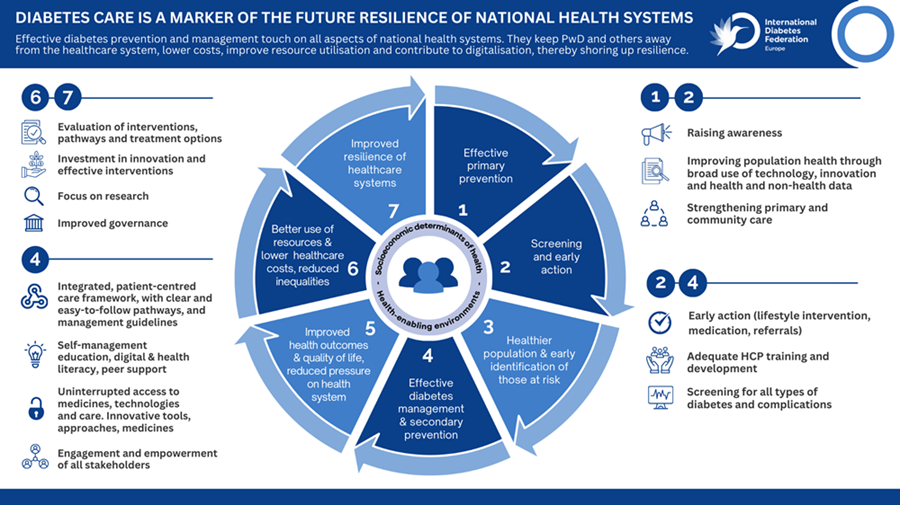Regaining competitiveness and securing lasting prosperity are at the core of the Commission’s Agenda. Innovation, decarbonisation and a reduction in dependencies are central to stimulating growth and productivity and achieving these goals. [i]
In this context, public health must be a priority. It directly influences well-being, life expectancy, productivity and income [ii]. Innovation in public health improves disease prevention and high-quality care delivery, reducing both the disease burden and healthcare costs. A healthier population strengthens human capital, enhances workforce resilience, drives productivity and supports innovation – strengthening Europe’s long-term competitiveness [iii].
Although absent from discussions on decarbonisation and the use of cleaner energies, healthcare systems are major contributors to carbon emissions. This sector accounts for 5% of total carbon emissions, with care pathways making up 40% of that footprint [iv]. Greener, more efficient health systems powered by innovation can contribute to better health outcomes while generating system-wide efficiencies.
Diabetes as a marker of healthcare system resilience & sustainability
Diabetes is a chronic condition which touches upon all aspects of healthcare systems. It results from a complex combination of individual (e.g., genetics) and external health factors (e.g., social determinants). It is the root cause of many non-communicable diseases (NCDs) and other complications. When left unaddressed, these can impose substantial individual, social and economic costs. Diabetes expenditure stood at €119 billion in 2024, one of the main health expenditure item in the EU [vi] [vii]. Around 75% of this is associated with complications [viii], which are often preventable with early and effective care.
.png)
At an individual level, managing diabetes imposes significant physical and psychological challenges and can lead to serious socio-economic consequences, such as decreased household income, increased expenditure and loss in savings [v] – all of which amplify social and economic inequalities.
Diabetes also takes a toll on society at large. It reduces labour participation, accelerates early retirement, increases sick leave, lowers tax revenues and undermines returns on human capital investment [iii; ix; x]. The burden of diabetes and other NCDs threatens productivity and economic growth. Studies suggest that each 10% increase in NCD-related mortality reduces annual economic growth by 0.5%, while effective NCD interventions can contribute to a similar increase in GDP [iii].

The way forward
Key demographic and health trends – population ageing, shrinking working age population, rising NCD prevalence (for example, 10% of European adults live with diabetes, forecast to increase to 11% by 2050) – and growing healthcare expenditure all combine to threaten the EU’s ability to sustain global competitiveness by straining public resources, reducing workforce health and productivity and undermining the wellbeing of citizens.
For diabetes (which can be a blueprint for other NCDs), leveraging available innovations and novel approaches can help prevent diabetes and improve outcomes, thereby keeping people away from healthcare systems, lowering costs and improving resource utilisation – in turn sustaining growth and productivity.
The EU must act now! This requires investment in research and innovation, a shift towards integrated, person-centred care, with a focus on equity in access. Engaging with people with lived experience and citizens at large will be a prerequisite to success.
Sign up to The Parliament's weekly newsletter
Every Friday our editorial team goes behind the headlines to offer insight and analysis on the key stories driving the EU agenda. Subscribe for free here.